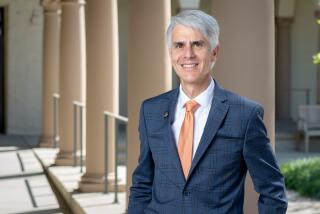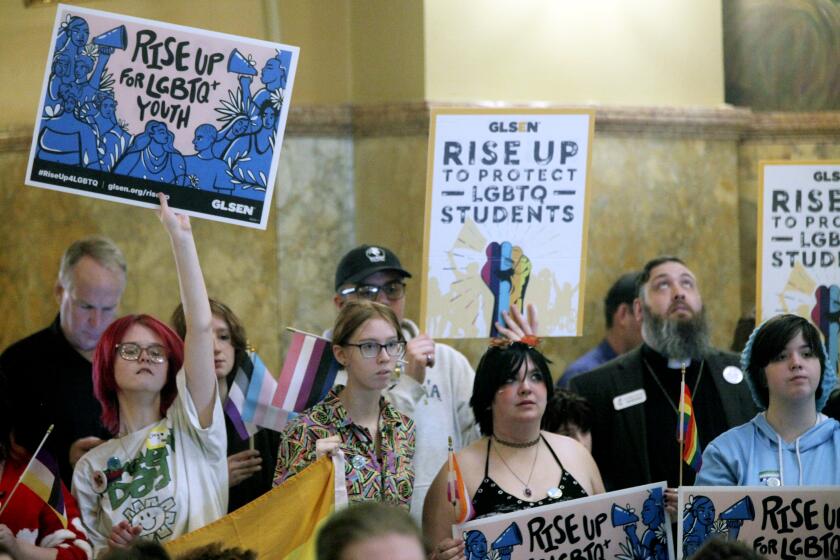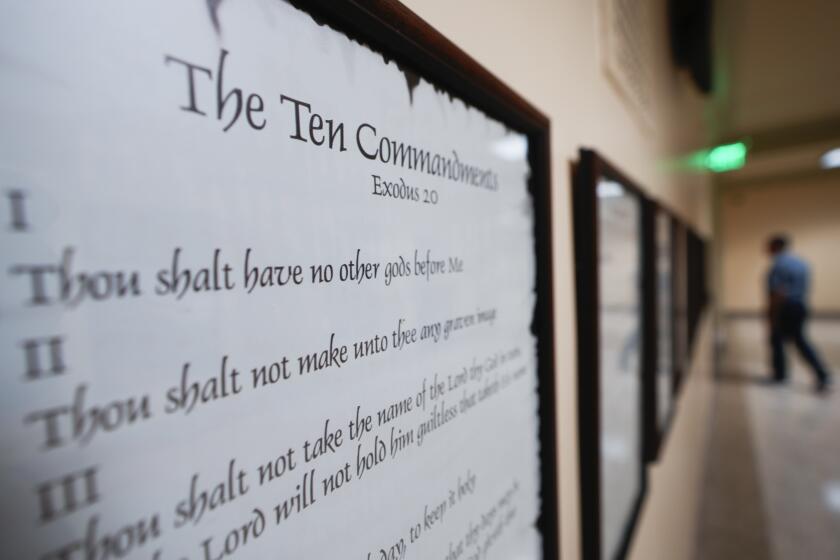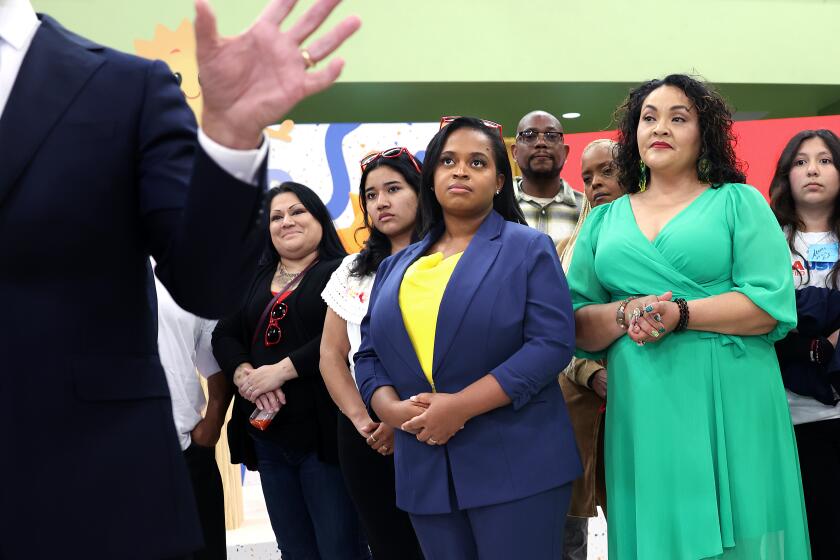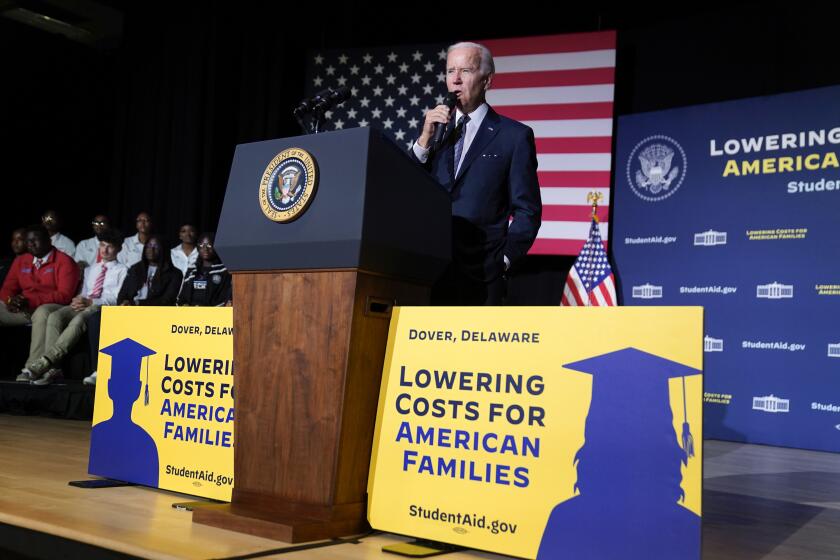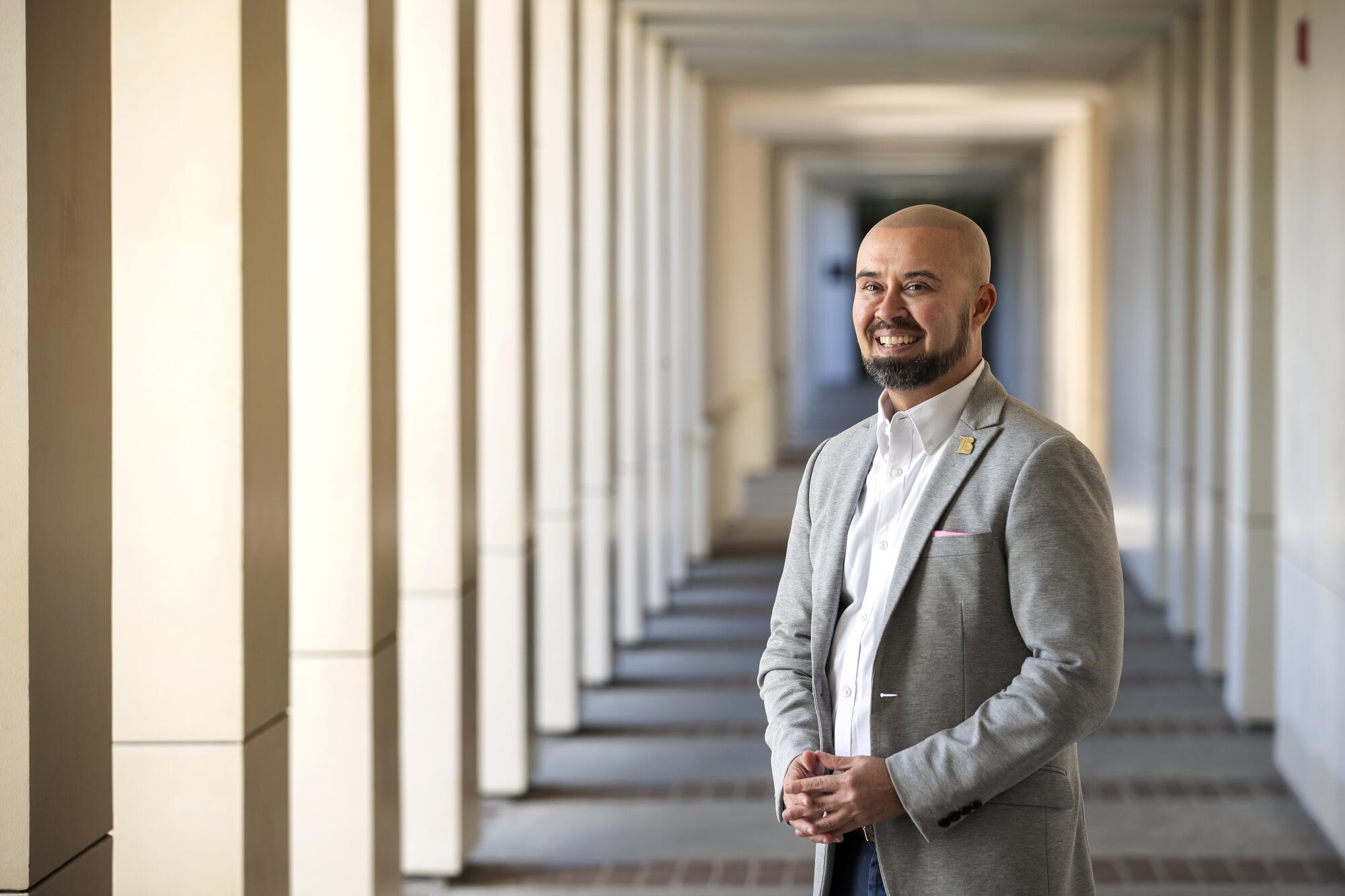
Mike Muñoz bears the lofty title of superintendent-president of Long Beach City College. But he still sees himself in many of his students who have navigated hardscrabble lives to pursue higher education.
Muñoz, who grew up in Whittier and Anaheim, became homeless at age 17 and moved 10 times in five years searching for a place to live. He went without food or electricity at times, scrapping to make ends meet with low-wage work. He became a single parent at age 20. Then, he came out as a gay man and became estranged from his father.
His experiences overcoming obstacles that impede college success have fueled his deep passion to break those barriers down.
“I see it as my superpower,” he said of his struggles. “It allows me to be radically empathetic and radically compassionate to people who have had these experiences. It really grounds me in my leadership.”
Discover the changemakers who are shaping every cultural corner of Los Angeles. This week we bring you The Disruptors. They include Mattel’s miracle maker, a modern Babe Ruth, a vendor avenger and more. All are agitators looking to rewrite the rules of influence and governance. Come back each Sunday for another installment.
Muñoz, 47, is nationally recognized for improving academic outcomes at Long Beach, one of the state’s largest community colleges. Two-thirds of its 34,800 students are low income; Latinos make up 53% followed by whites at 14%, Black students at 13%, Asians and Filipinos at 11% and multiethnic students at 8%.
Progress among Black and Latino students is particularly striking, with rising enrollments and persistence rates, meaning more students continued their studies after entering instead of dropping out. The number of first-time Black students seeking a certificate or degree increased by 30% in 2022-23 over the previous year. Persistence rates rose by 12%. The percentage of Black students who completed their program or transferred to a four-year institution remains low — 10% — but that is up from 6% in 2017.
For Latinos, enrollment increased by 21%, persistence rates by 5.8% and program completion rates by 27% in 2022-23 compared with the previous year, according to college data.
Muñoz has aggressively tackled obstacles to achievement since joining Long Beach in 2018, first as vice president of student services, then superintendent-president in 2021. Before that, he spent 13 years at Rio Hondo College and Santa Ana College in counseling, equity and student success.
Muñoz knows firsthand that students need support to succeed. He and his team have provided more campus jobs using unspent federal work study awards; free after-school care for children of student parents; a food pantry, academic resources, a new Black student success center and tailored supports for men of color, who are at greater risk of dropping out.
Long Beach was one of the first California colleges to provide its parking structure as a safe space for students living in their vehicles, as Muñoz did in earlier years. He was an early advocate of dropping placement tests for entry into transfer-level math and English courses, saying they were biased against underserved students; Black student completion rates of those English courses have soared from 9% in 2018 to 25% this year while Latino rates grew from 12% to 35%.
At times, his relentless push for change has drawn criticism. But Munoz says he views his reputation for upending the status quo as a “badge of honor.”



